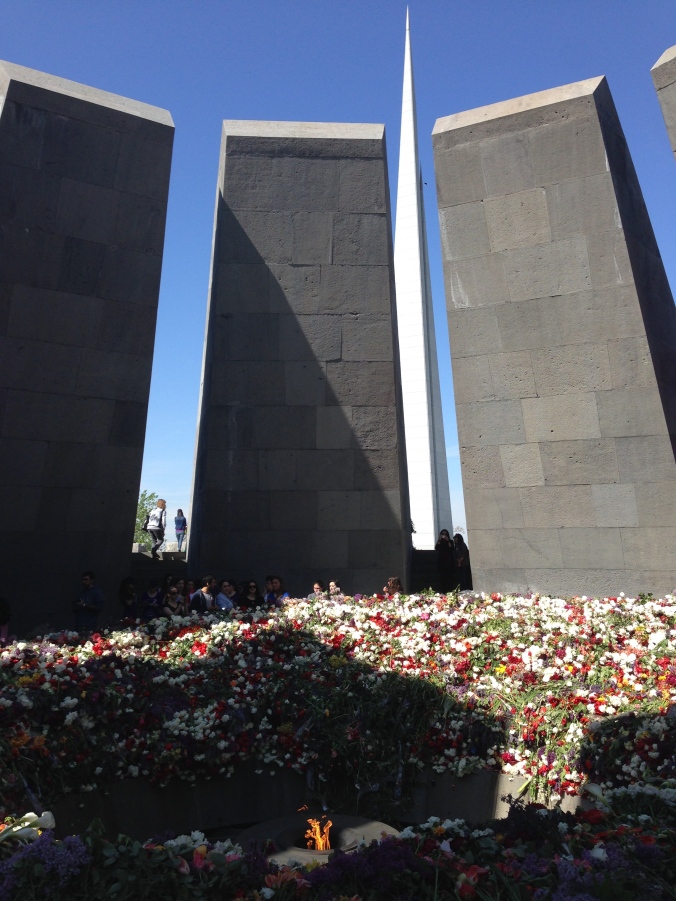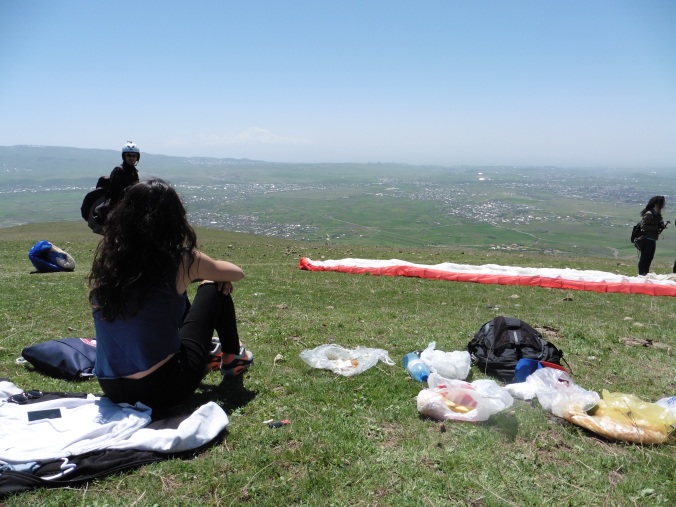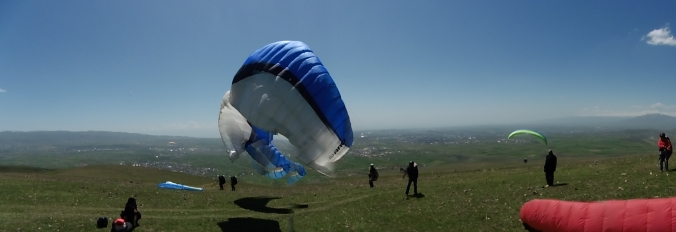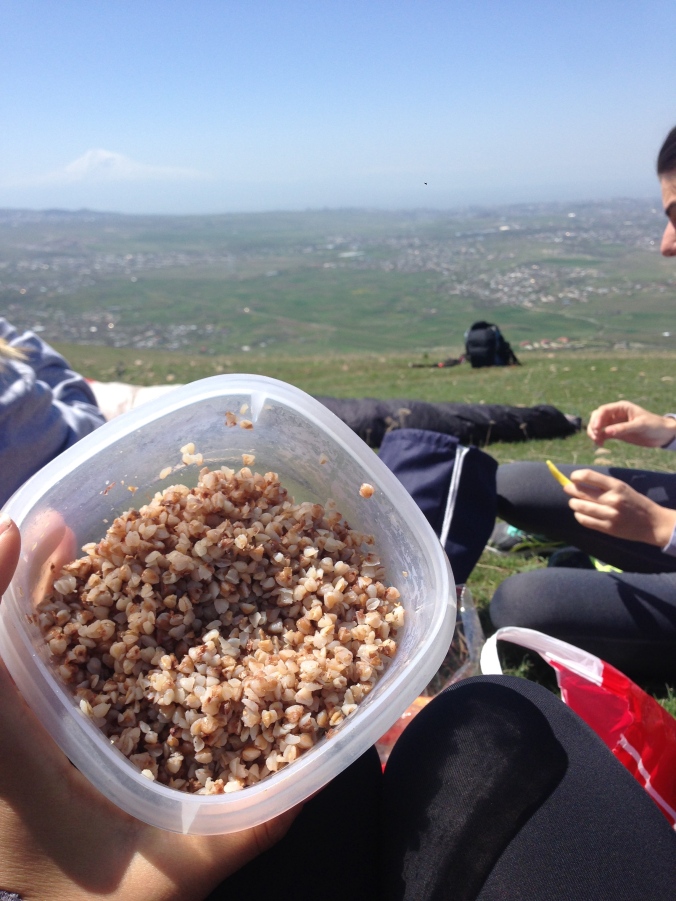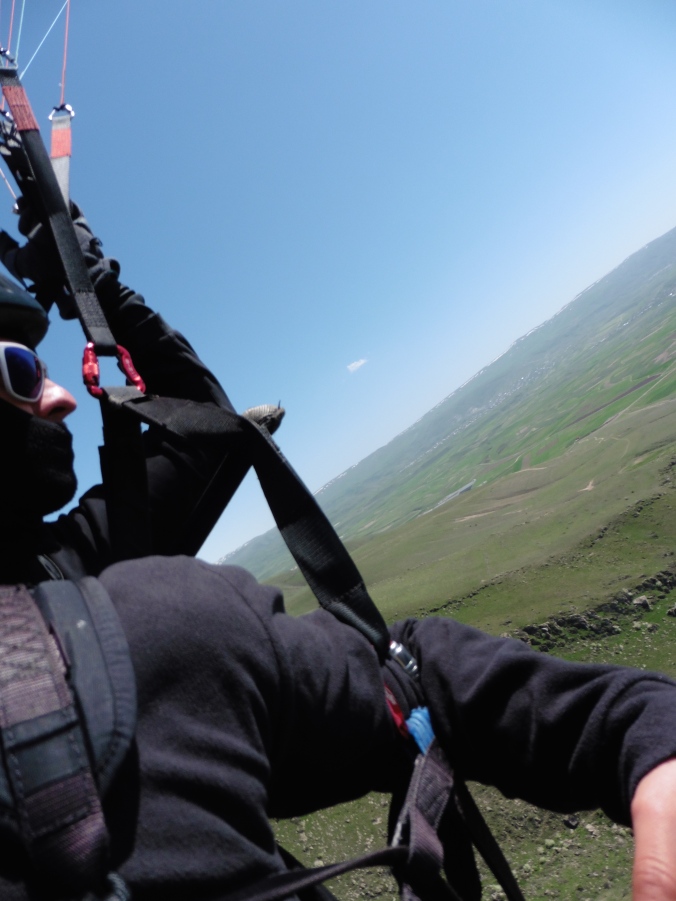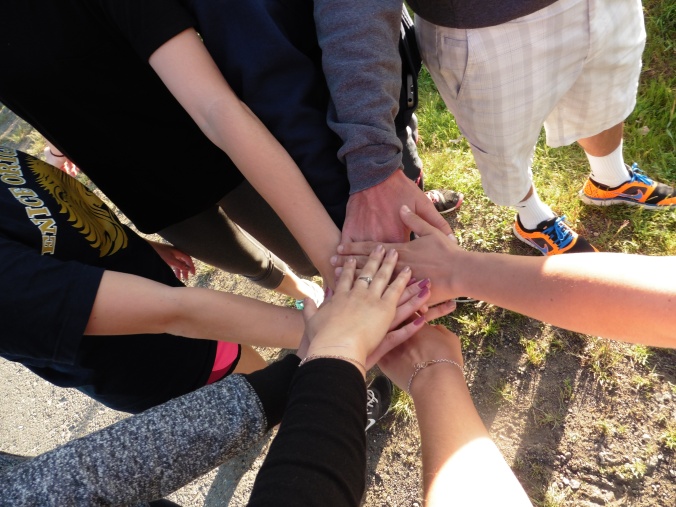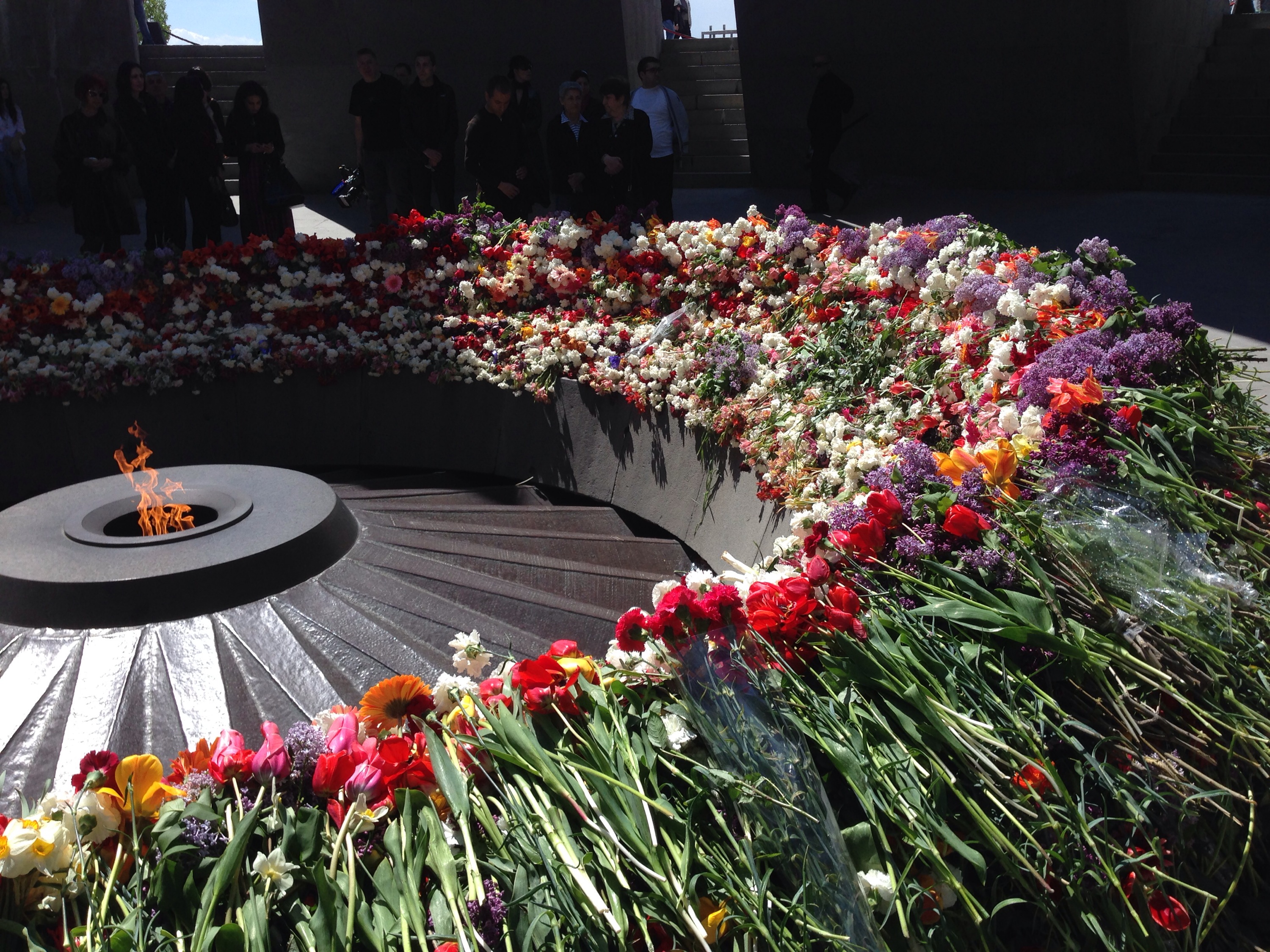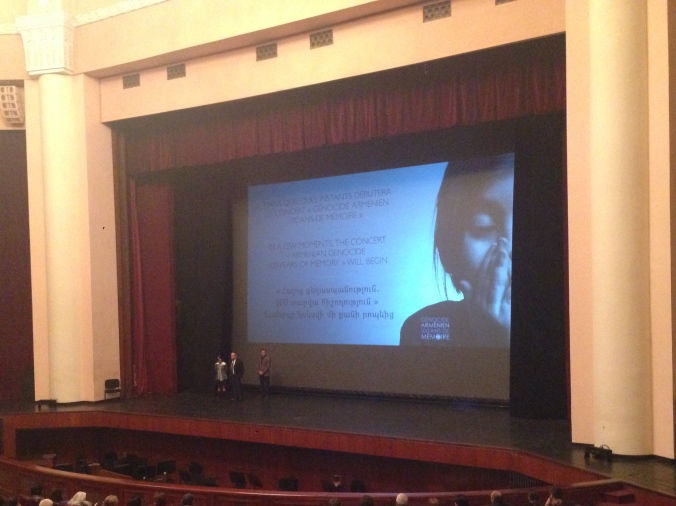Ooops – another week has flown by without a blog post! I guess that’s fairly indicative of how things have been going lately. It feels as if I’ve been here so much longer than three weeks given how much has happened in that time. Between work, class, events with the program, and time with friends, it seems I’m hardly ever home or on my computer – which is a great improvement from the way I typically live! It’s funny thinking how much I’ve done here that I simply wouldn’t have done at home, like impromptu wine nights with friends, and karaoke on Mondays. I unfortunately had my first negative food experience Monday night though, so Tuesday I was pretty much out of commission. My biggest fear coming to Armenia was that I’d be getting sick all the time and not know what was causing it and then be too afraid to eat, but I’m so grateful that couldn’t be further from what’s happened. I’m slowly learning how to order food and make sure it doesn’t have ingredients that will make me sick, and how to explain to servers what I can and can’t have. My host family has been making yummy food, and I’ve found some delicious (and not so delicious) snacks. I’m dying to get back to America and whip up some gluten free lamachun though! I know my grandma left behind a lot of recipes, and it would be neat if I could learn to cook from those now and adapt them to meet my needs. I only wish I’d had her teach me when I was alive.
With each passing week, I feel myself becoming more attached to this culture and more committed to making it a central aspect of my life moving forward. I want to learn Armenian cooking, learn the songs we sang today on the bus ride home from our excursion, continue to practice speaking. It’s really amazing how much I feel I’ve already learned just being immersed in the language, even if it’s so hard for me to actually speak myself. I love going to language classes, and have entertained myself trying to learn the alphabet. It’s my goal while I’m here to practice Armenian calligraphy, at least as much as learning to draw all the letters in creative ways. On Wednesday, we celebrated the International Day of Dance by attending an event by the opera house and learning some traditional dances. Stumbling over ourselves, trying to move in circles on a slope, we all couldn’t stop laughing. Amazing how getting out of your comfort zone can be so rewarding, and so exhilarating. I’m usually so shy about things like dancing, but since getting here, I feel like I’ve been able to push myself out of my shell more, to seize every opportunity handed to me and try to enjoy it as much as I can. So far, I haven’t been disappointed. Each morning I wake up smiling thinking about the day before and the day ahead. It’s really such a joy to be learning so much about my heritage and how its expressed, how vibrant it can be, while connecting with other Armenians and diasporans.
May 1 was Armenian Labor Day, so we had no work. A group of friends and I decided to go paragliding, as we’d discussed the idea and the weather was supposed to be perfect. Talk about breaking routine! We were picked up from Yerevan by the paragliding company in a little white matrushka bus and taken to the hostel where the company is based. From there, we drove up to Hatis Mountain to begin our adventure. When I say we drove up the mountain I mean we literally drove on it – there was no paved road, just some tired tracks and boulders. More boulders than any reasonable person would be comfortable driving over so nonchalantly, but somehow we survived. We knew we were in for a fun day since our drivers spoke only Russian, though our official tour guide spoke Armenian and English. This more or less set the tone for the day: lack of communication, abundance of laughs. We spent hours lounging around around the middle of the mountain, listening to music, watching each other take off, and admiring the other paragliders. By mid-afternoon there were so many chutes up in the air, it was so beautiful! I imagine that’s what Santa Fe or Cappadocia must look like with all the hot air balloons up in the air. Being back in the mountains felt like Colorado, and I found my soul more at rest than it’s been in a long while. Sitting there with good friends and good food and a beautiful view, I couldn’t imagine any better way to spend my time or memory to make.
I imagined paragliding would be a lot more similar to parasailing and was surprised by how slow moving and relaxing the ride was. Whereas with parasailing you’re going fast and mostly straight, my paraglide ride was pretty much just a moseying descent to the bottom of the mountain. We weren’t able to catch a thermal to lift us back to our launching place, which ended up being an adventure unto itself. I spent a good hour at the base of the mountain with 3 Ukrainian guides, 3 Armenian EMTs, and a few other local men…and no cell phone to let my friends know where I was and that I was OK. Obviously when I got back up an hour later, there was a lot of explaining to do! After another hour we headed back to the base of the mountain as the last two guys prepared for their ride. Our driver loaded the 7 of us girls into the matrushka and took us to the bottom…and then got picked up. We couldn’t believe he just took off, leaving us with the bus and without an explanation. Oddly, being stranded like this added to the day’s fun and we had quite the dance party! Finally the last two gliders landed in the field behind us, and we commenced dancing in the street with them, some random Russians, and our guides. The ride back to Yerevan stayed just as jubilant, blasting music and singing with our crazy driver. It’s hard to reduce a twelve hour day into a paragraph like this, and I already fear forgetting all these crazy days.
After Friday, for perhaps the fifth time since I’ve been here, I felt myself saying over and over “this was one of the best days ever,” and sincerely meaning it. The experiences I’ve had so far have truly been incredible, and I sound like a broken record with these same platitudes, but there aren’t words for days like these. Thanks to Facebook, I learned that May 1 marked a year since my last day of undergrad classes, even though it feels like a lifetime has gone by since then. Turning in my last final, I could never have imagined what I’d be doing now, and I especially couldn’t have imagined how I’d feel. I keep hearing Tim McGraw’s “Live Like You Were Dying” in my head and chuckling because in the last 365 days I have literally gone Rocky Mountain climbing and (essentially) sky diving. I’ve loved deeper, spoke sweeter, and perhaps more than anything, become more focused on living in the purest sense. People say to live like you’re dying all the time, but that isn’t really a way to live. Instead, I hope that I can continue to live in the moment, live for each day and try to savor the little things as much as the big ones. The last few weeks have been defined by laughing so hard my stomach hurts, by sunshine and learning, by gratitude and humility, by pride and connection, and accomplishments that can’t be measured on paper or even with words.
My first weekend here, my host sister made a comment about the girls I was having wine with and how they didn’t seem like people I’d hang out around, how they seemed so different than me. The way this program brings together diverse people into a unique, intense but fun experience is the most wonderful aspect of it for me. When I think about the group of people I spend my time with, I know there’s no way that we would be together in the US, or be able to do as much as we have. Our lives would be unlikely to cross, and maybe if this were high school, we’d all be in pretty different “groups.” None of that matters here though. It’s nothing short of serendipity that we all ended up together, that we could connect over things that matter and let the superficial be insignificant as it should be. I’m grateful to have people who are different but similar to me, who bring out my strengths while also challenging me to grow by pushing my boundaries personally, emotionally, and socially. I really didn’t expect that I’d have as much fun here as I have, and even if it’s sometimes hard feeling like I’m not totally “myself” or doing the things I usually do (like read a book a week), I know that it’s so much more important to say yes to life here, to say yes to friends and events and experiences as much as possible. Books will always be there, but this time is limited, and every second is a gift.

